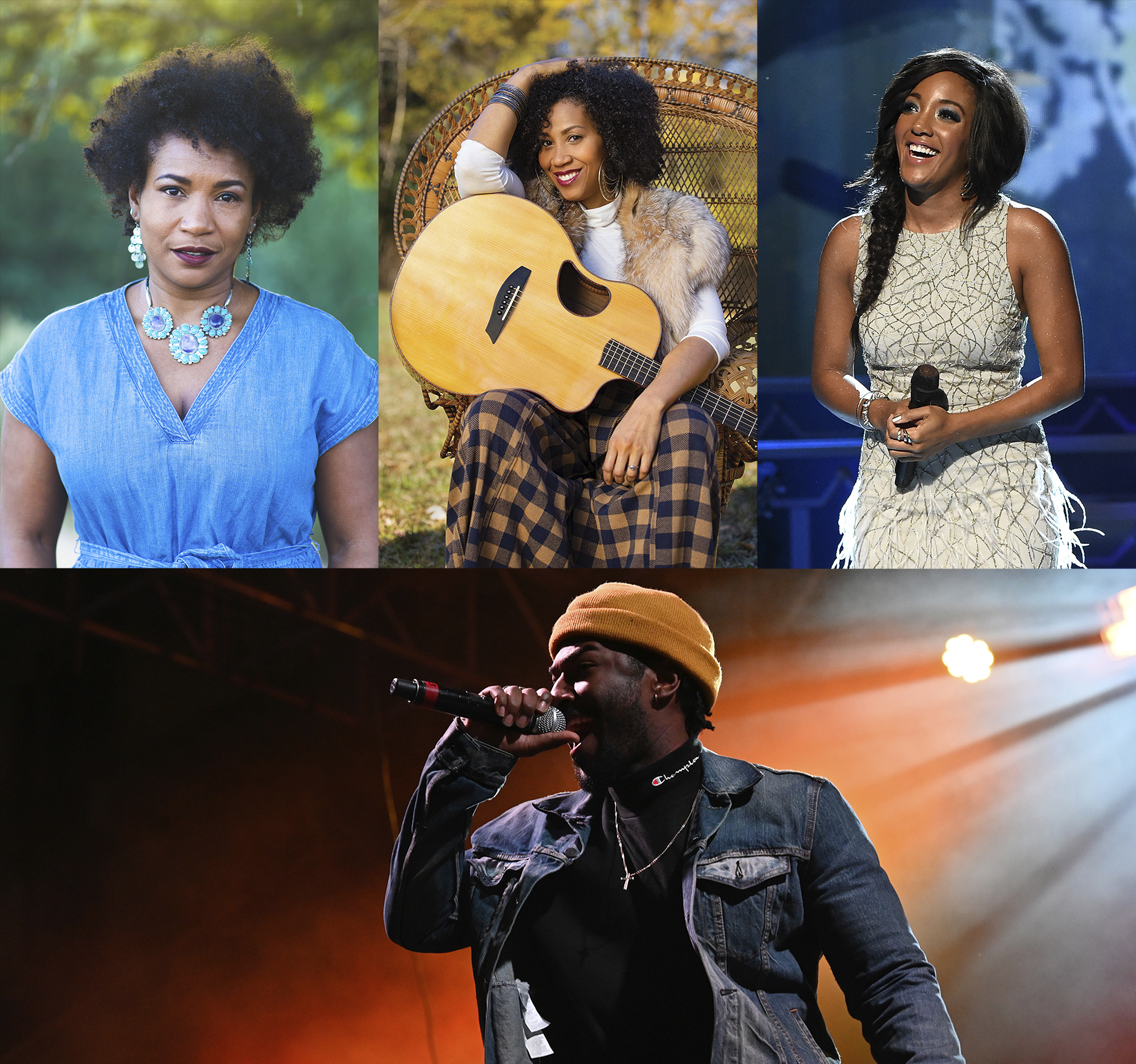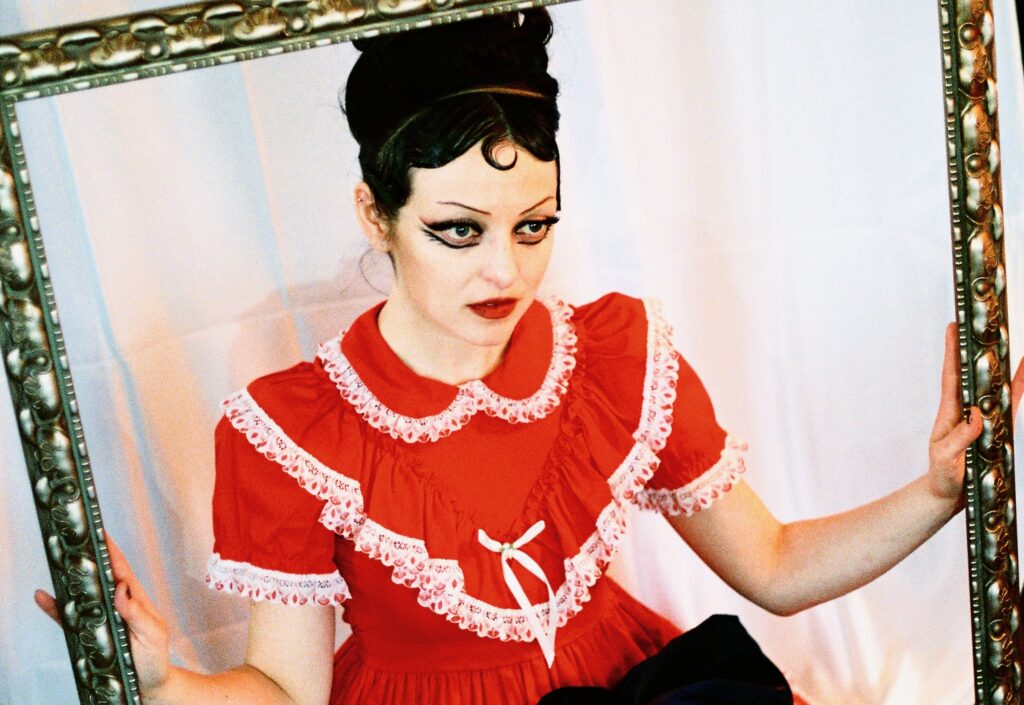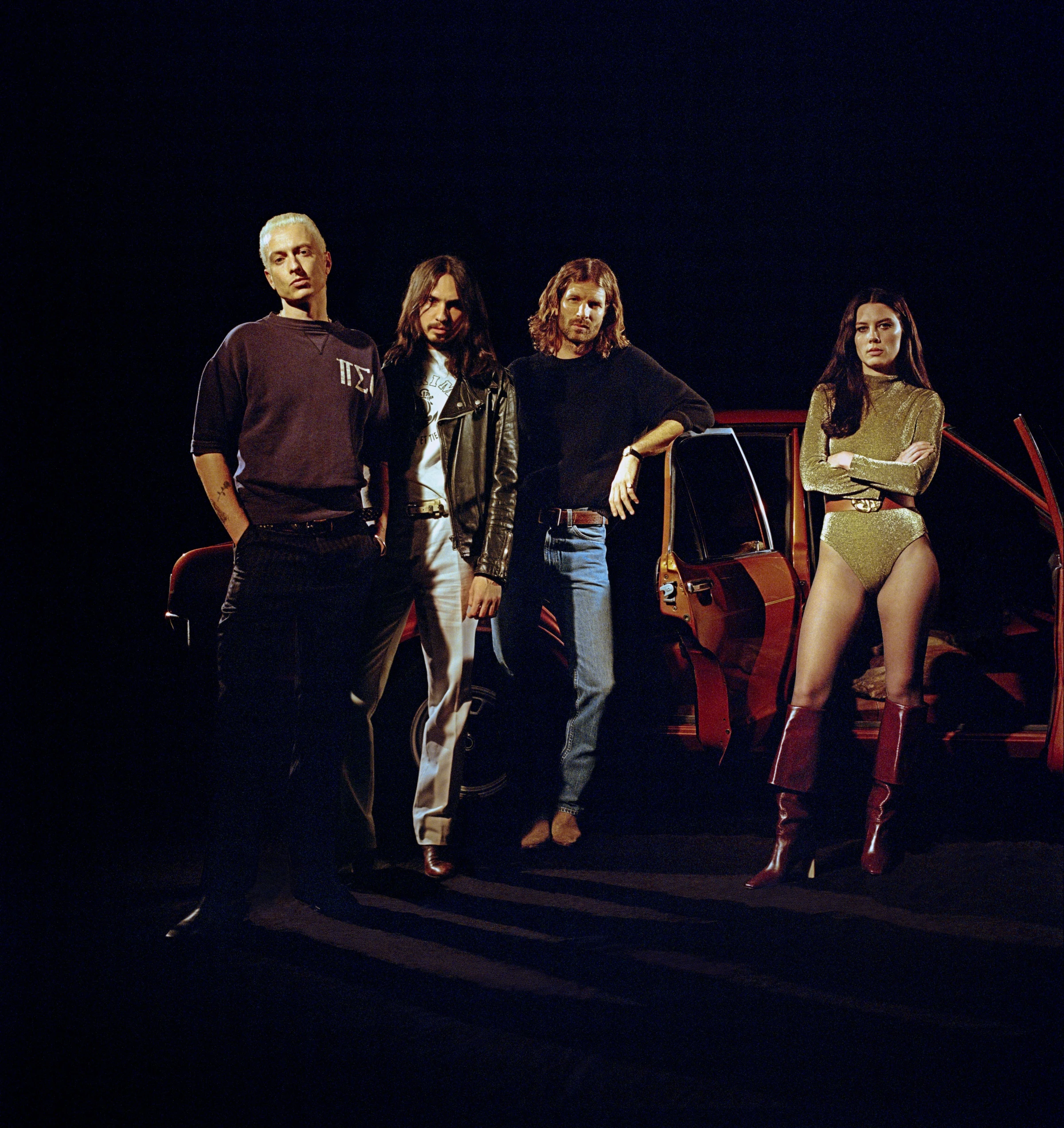Country music’s longstanding race problem suddenly became a hot topic in early February after the white, twenty-something, good ol’ party boy and newly minted country chart-topper Morgan Wallen was caught on tape drunkenly shouting a racist slur. Despite the fact that he was promptly booted from radio rotation, streaming playlists and award eligibility, and “suspended” by his label Big Loud in an ambiguous distancing gesture, sales and streaming of his double album surged.
Nashville-based writer Andrea Williams quickly emerged as an expert of choice for media outlets of all kinds, for good reason: She merges critical analysis with activist conviction and firsthand testimony, having watched her producer/musician husband Dre Williams marginalized as a Black man in an industry that privileges whiteness. Even before the Wallen scandal hit, Andrea Williams and NPR Music contributor Jewly Hight already planned to unpack the recent responses to the white supremacy embedded in the country music industry — ranging from the insufficient to the challenging, and originating with insiders, outsiders, institutions, corporations and grassroots coalitions alike — since the broader reckoning with the devaluing of Black lives and labor reshaped the national dialogue last summer. They tackled it all in this two-way conversation.
This conversation has been edited for length and clarity.
Jewly Hight: It seemed to me that the Morgan Wallen scenario was the first event that tested the industry in this era, the first time that we have seen how institutions and corporations will respond to an explicit display of racism.
Andrea Williams: I have said that whatever anybody was doing over the summer, that was the dry run. All of the, “Let’s have a panel! Let’s talk about it! Black Lives Matter!” — all of that was just rehearsal. Now the lights are up and this is the real show and we’re on stage. Quite literally, the whole nation is watching, so it’s important that we put into actual play the stuff that we were talking about.
Hight: When I watched how decisively and quickly terrestrial radio and streaming platforms, media companies like CMT and even institutions like the ACMs dropped him, I was thinking that the ethical layer to those actions coexists with their business interests. There is that element of image management and PR, but when you’re talking about a capitalistic music industry in general, those considerations are always in play. Companies act in their best interest. But whatever their calculations, I’ve never seen the corporate gatekeepers at iHeartRadio and Cumulus do anything like this.
In your think piece for Vulture, you made it clear that it’s possible to manage the perception and send the message that country music’s race problem has been dealt with without actually dealing with it.
Williams: I mean, that is ultimately the crux of it. I think, collectively, we put a lot of the onus on Morgan Wallen, but there’s also [his label] Big Loud. And right after the corporate crackdown, we’ve got this Instagram post that originates from someone loosely associated with the company: Rakiyah Marshall, the longtime girlfriend of Seth England, who started out in this industry as Florida Georgia Line’s manager but is now the CEO of Big Loud.
She has also started a publishing and artist development company in partnership with Big Loud. So she is very much invested in Morgan Wallen’s success, and at the same time, has pushed to ease the “cancellation” — which those of us in the real world know doesn’t actually exist, not for someone like Morgan Wallen at this juncture in his career.
The most telling thing is, here’s the guy who said the n-word and he doesn’t just have cover for it — he has cover from a Black woman. And this is a Black woman who’s likely free from all of the barriers faced by other Black women in this town. She is quite literally shielded by Seth’s money and power, and wrote that post from her position of privilege, with zero consideration of the other Black people who, regardless of how they feel about Morgan Wallen personally, need this industry to fully address its long-standing racism.
Hight: It’s interesting to think about this as a fracturing of the Nashville establishment’s narrative, like Morgan Wallen has made an otherwise “respectable and unified” industry look bad. Every time someone in a position of authority posts that Wallen means well or he’s a decent human being, that’s shoring up the narrative that hides many other realities beneath the surface.
Have you had any responses to your Vulture piece that you found interesting?
Williams: That piece came out shortly after the video dropped, when the conversation was still largely about Wallen. I don’t know if people were really ready to have the larger conversation about what Wallen’s action means for the industry at large. But my Twitter thread [about white women in the industry voicing support of Wallen] did generate some surprising stuff. I did have some people start to say, “Yes, OK, this is bigger than Wallen, and white women may be part of the problem.”
The whole narrative in country music is always, “Women are screwed, and it’s a men-versus-women thing and everything else is secondary.” But I’ve always said that women can’t expect to move forward when they’re not trying to heal the industry on the whole.
Then there’s also the reality that, yeah, white women are wholly complicit in holding this thing up, because it ultimately benefits those who are in power. If sisterhood is such a thing, how come nobody is saying anything about Mickey [Guyton], how, even in this moment, with “Black Like Me” getting all this attention, it has zero radio adds? Why haven’t white female artists, en masse, spoken out about the vitriol Mickey receives from country music fans on a daily basis?
Hight: This is a good moment to talk about CMT’s Next Women of Country campaign as an example of a corporate effort. I remember when Mickey Guyton first participated in Next Women of Country; she was the only Black artist that year. And that was the way things were; some years there might be one Black artist, and lots of years there were none — up until this year when they announced the class and it seemed like CMT had been intentional about choosing a more representative group that included several different Black solo artists and a trio. There’s also the parallel effort, Change the Conversation, that’s been holding events to discuss gender inequality in country music for years. What have you observed as you’ve watched the work of both over the years? What did you make of it when you saw this year’s Next Women of Country class?
Williams: I was aware that these institutions existed, but I’ve also known that they don’t mean anything for Black people, in the same way that NSAI [Nashville Songwriters Association International], and all of these other organizations that claim to want to help people get into the industry and/or make more inclusive spaces, have also never meant anything for Black people in country music.
Of course, post-2020, the CMT Next Women of Country can’t do an all-white lineup, in the same way that iHeartRadio and all of these other organizations have to say something about Wallen’s n-word. It’s the bare minimum.
I’m always saying that most people in Nashville are going to be late in terms of understanding country music’s issue with racism and being willing to stand up and do something about it. Black people have lived this. We know it inside and out. There are some white people who are really just waking up to this and others who keep hitting the snooze button because they don’t want to see it, let alone address it.
We’re not still having these conversations in 2021 because there were already so many decision-makers here working so hard to turn it around — the people who were doing the work were doing it on behalf of the groups that mattered to them, and it was white women. When Change the Conversation says, “We’re out here for women,” it doesn’t help Mickey. Why? Because Mickey’s not a woman who happens to be Black. She’s a Black woman. And her Blackness supersedes whatever superficial efforts they’re doing for women on the whole.
Hight: The way the CMA Awards honored Charley Pride last year struck me as too little too late. We both wrote about it, and it seemed like an awkward early example of the industry trying to respond.
Williams: Honestly, the earliest moment for me was the Lady Antebellum situation. Even before this, Lady Antebellum got to be Lady Antebellum — essentially, Lady in the Time of Slavery — for nearly 15 years. They felt convicted because of the Black Lives Matter Movement and wanted to “change their name.” But then they found out there was a Black woman, a Black blues artist, who already owned this name and has for decades, and they don’t bow out. They were already out of pocket, perhaps subjectively at that point. But then, not only did they decide to sue her, but they used their privilege and power to go to the press with their prepackaged statement that threw Anita all the way under the bus and further exerted their control of the overall narrative. Meanwhile, there still was no industry-level [backlash]. None. Everybody can agree that the n-word is bad, but no one sees Lady Antebellum’s treatment of Lady A as a branch from the same tree.
Hight: The group was just welcomed into the membership of the Grand Ole Opry.
Williams: Also, they were invited by Darius Rucker, so here we have again that Black cover. If we put a Black face in front — if we have Darius invite Lady Antebellum; if we have Rakiyah say that Morgan’s really not racist — it goes that much further in providing this cover that country music has always relied on. There are a lot of white people right now, in this moment, who don’t know what to do about this push for racial justice, so they’re looking to Black people for guidance. And when we have people like Darius and Rakiyah who are serving as tools of white supremacy — whether they intend to or even recognize it — it makes the struggle that much harder. I’m not a multi-platinum, award-winning artist, so why would a white person listen to me say that Lady Antebellum is problematic and reflective of country music’s deeper issues, when Darius Rucker says they’re fine?
Hight: Speaking of institutions, as you wrote about in your piece for the Nashville Scene, the National Museum of African American Music embodies a critique of the Nashville industry. Even its geographical location in a predominantly white tourist and business corridor downtown is significant.
When I got a preview of the museum, I zeroed in on one exhibit that illustrated cultural appropriation in a straightforward and effective way. They had rows of 45 rpm singles that you could pull down and see which Black artist recorded the original version of a song and which white artist covered it and reaped the pop success. The first one was LaVern Baker and “Tweedle Dee.”
The interactive exhibits that they’ve created — to demonstrate jazz improvisation, rap battling, precision dance choreography — foreground the cultivated skill and virtuosity involved in numerous performing art forms. And that’s an important thing to emphasize in Nashville, where mainstream country’s hip-hop borrowing often happens through white songwriters thinking they can just pick up beat-making. They don’t even seek out those in the city’s backyard, in the hip-hop scene mostly made up of Black Nashville natives, who’ve already developed those specialties.
Williams: Black creators have been programming and adding drum loops and other digital elements to music for generations. Literally. And this goes back to how slow Nashville is. Nashville is always copying and relying on other art forms to decide where it’s going to go next. So you’ve got these white track guys that are coming in right now, and because Nashville is so far behind, they have the space to really sit and study and learn — and they get signed to publishing deals and are given equipment budgets while they’re learning. Meanwhile, Dre showed up ten years ago and already had ten years of experience building tracks and incorporating live instruments, yet there was never a space for him. He was Black, and that provided a disadvantage in country music. But he was also, like so many other Black producers, too early.
But here’s the problem: Now that country music is regularly incorporating these elements from Black music, Dre and all of these other producers should be “on time.” But they’re not, because country music doesn’t want them. It wants the white boys who have “studied” Black music and can create a good-enough replication instead of the authentic version from Black folks who’ve lived it.
Hight: You just appeared on Rissi Palmer’s Color Me Country radio show. That’s another interesting example of corporate investment, with Apple Radio resources behind it. But it’s also a platform for Rissi to have conversations that she wants to have and highlight Black, Latina and indigenous performers that she wants to highlight, and present it to a pretty broad audience, and she’s started a parallel Color Me Country fund for artists. What do you think it’s proven or accomplished so far?
Williams: It’s proven that it’s possible to have a diversity of Black voices. Rissi’s got a show and Tiera’s got a show. They’re both Black women, but they’re so different, and they both get a show at the same time. Willie Jones and Breland, both Black guys, but really different in voice and style —they each get a space here.
The super cool thing, for me, was seeing that Apple didn’t come in like, “Okay, we want Black faces so we’re only going to call Darius [Rucker] or Mickey [Guyton].” Aside from Rissi (and Jimmie [Allen], who also has a show) all of these people were really early in their careers, yet Apple Music was still like, “Here, let me give you money and resources to do what you want to do, but also to get yourself and your brand out there.” For so long, the argument in country music about why we don’t have enough racial diversity has been, “We don’t know how to market you.” But we know that the industry can make a success out of virtually anyone they give proper support to. Apple Music is proving this.
Hight: Let’s talk about Willie Jones. He’s a young, Black man from the Deep South who’s making this music that shows he understands, and can bring personality to, country tropes and clichés and vocally, can slide expertly between traditional country flourishes, R&B inflections and hip-hop patterns in two different octaves.
Williams: There are a few tracks [on his album Right Now] that are, to me, such throwaways. They’re not bad; they’re just not special because any white boy could’ve cut them in town right now. They could’ve been on the next Florida Georgia Line album. And I think they stand out because of songs like “American Dream” which so clearly reveal his perspective as an unapologetically Black man from the Deep South, a young guy who obviously has all of these different influences.
Hight: One of the things that is phenomenal about “American Dream” is that he is speaking on so many different levels; the way that he leans on his Southern drawl when he sings about the pride he takes in being a Black man and about the inaccessibility of the American dream; the way that he expresses both reverence for and distrust of the American flag as a symbol and talks back to patriotic songwriting traditions. That is meaningful and well constructed lyrically.
Williams: Here’s the thing: This goes back to what Nashville, or the country music industry, values — and what it doesn’t value. I’m not comparing an OutKast to a Willie Jones, but — as a very specific example that can certainly be applied to other Black Southern artists — I think what makes [OutKast] great is that if we take each song and divide it into individual elements, we’ve got the lyric, the vocal performance, the production. And they all stand alone as these incredible amplifications of the southern Black tradition, representing those who came before but also how they’re driving music into the future. I wanted to get that from Willie Jones, but I don’t know that I did. He’s got moments, certainly, where the vocal performance really, really shines. And “American Dream” isn’t just constructed well, lyrically, but what he’s doing to stand proudly and vocally as a Black man in this space cannot be overstated. That’s important. And he, as an artist, is innovative in that way, even if the music isn’t.
Hight: I know what you mean. When I heard the production behind him on the original version of “Down For It,” I was disappointed. But he pointed out something interesting about that track in a podcast interview: even though Sam Hunt was widely credited with being the first country-pop artist to use a sample in a single, Willie beat him to it in 2019 by sampling T.I.’s “Whatever You Like” in “Down For It.”
Willie also said that he wanted a more legit hip-hop drum sound for the remix, and he turned to Atlanta hip-hop producer Lamar “My Guy Mars” Edwards for that. In the liner notes, Edwards is credited as an executive producer of the whole album, and he’s got writing and production credits on several tracks. But it looks like many of the other Nashville and L.A. folks Willie works with may be from the same, old, predominately white circles. You’ve pointed out that those kinds of decisions about who to work with make a difference both in how the music turns out and in who gets a place at the table and a foothold in the industry.
Williams: I think that’s the next conversation that we’re really going to have to start having. I think we’re getting to a place where people feel comfortable saying, “OK, yes, we need to push for more Black artists.” And I understand why people start with artists, but when we’re talking about real equity, we’ve got to talk about who is generating actual wealth that can last from generation to generation. It means something if you’re a Black songwriter or a producer in this town and you know that the white artists are going to shut you out, but also that it’s still pretty difficult to get in the door with Black artists, too.
Hight: I was also thinking about how Willie Jones presents himself. Visually, vocally, in the writing of “American Dream,” he foregrounds his identity and experience as a young, Black man. Do you think that the country mainstream has demanded the opposite of Black performers, that they make white people comfortable by minimizing who they are instead of putting out front?
Williams: That’s an interesting conversation. I spoke to this in my Charley Pride piece. Certainly it was demanded of Charley, for sure. I would say it was probably demanded of Darius. I think we’re in a weird period right now, though, where it may not be explicitly demanded of newer Black male artists, but I think they’re coming in and assuming that that is what they need to do. They are volunteering that approach. And when you come in and you’re not foregrounding your Blackness, when you’re trying to hide and minimize who you are, that also means that you’re likely to come in with an all-white band and hire all-white management and an all-white team that, again, doesn’t create space for other people who look like you.
The industry doesn’t just look like this because we don’t have enough Black artists; it’s also because we don’t have Black musicians, songwriters, producers, managers, publicists and on and on. And even Black artists have the power to make those changes.
Hight: Miko Marks also has an album coming out next month after a long time away from music. I went back and listened to the recordings she made when she was trying to launch her country career in Nashville in the aughts. It sounds like the work of an accomplished performer who never got a chance. Her new album is more of a rootsy history lesson in the tributaries of country-gospel, country-blues and country-soul, and it’s being released primarily through a small, East Palo Alto indie label, Redtone Records, that focuses on cultural preservation. It doesn’t have the fingerprints of Nashville, but in an interview Miko just did with Marcus Dowling, she did say that she felt empowered to reenter the recording process because of the way other Black women artists, like Rissi and Mickey, have been making their presence and Nashville experiences known. What do you make of the fact that that was what drew Miko Marks back to making country, on her own terms?
Williams: I love that. I talked to Miko for a Nashville Scene piece. She’s friends with Erykah Badu, and she was talking to me about how Erykah was like, “Girl, what are you doing over there in Nashville playing with these white folks? Why are you doing this to yourself?” But Miko was just so wholly committed to this. And this is where I get upset: Even now, if we throw all of our weight behind up-and-coming Black female artists, we’ve already missed so many women who didn’t have a chance. When Miko was here, there was no national uproar about the Black experience that made advocating for Black women in country music an OK thing — or a trendy thing — to do.
So I’m really glad that Miko has decided to come back. And I’ve been talking to Rissi about the whole thing, too. These women have been so broken by this town. The conversations that I have with them are part of what drive me on a daily basis, because no one else should have to go through that again. And until I know for sure that that isn’t going to happen to anybody again, I’m going to keep pushing.
I know it takes a lot to be willing to give up on the thing that you have always wanted to do, simply because you know that racism will always overpower your talent and your work ethic. But it also takes a lot to come back and say, “Alright, I’m going to give it another go.”
9(mda2nzqwotg1mdeyotc4nzi2mzjmnmzlza001))




